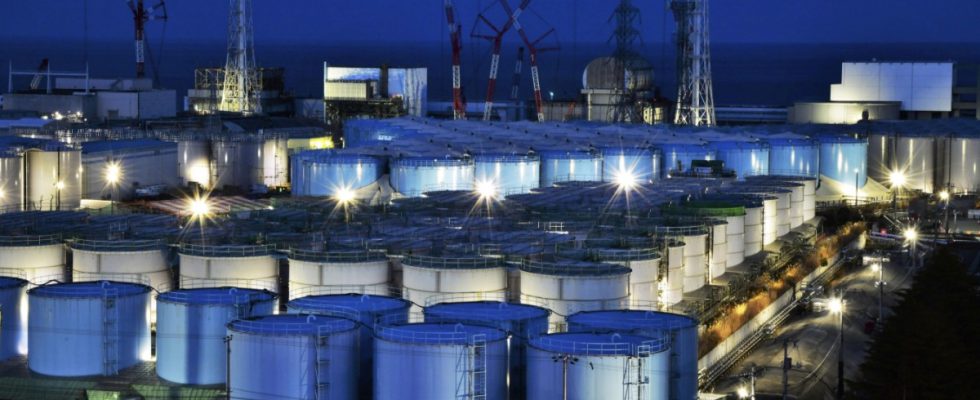The International Atomic Energy Agency (IAEA) has given Japan the green light to dispose of radioactive cooling water in the ocean. The disposal plan meets international standards, said IAEA boss Rafael Grossi in Tokyo.
On March 11, 2011, a severe earthquake and a huge tsunami caused a meltdown at the Fukushima Daiichi nuclear plant with core meltdowns. More than twelve years later, the destroyed reactors still have to be cooled with water. Due to infiltrating rainwater and groundwater, the amount of irradiated water is increasing every day. More than 1.3 million tons of it are now stored in around 1,000 tanks.
But now, according to the operator Tepco, the space is running out. The water is therefore to be filtered through a tunnel that extends about one kilometer into the sea and then dumped diluted. However, the ALPS technical system cannot filter out the tritium isotope. According to Tepco and the IAEA, there is still no danger, since the water is diluted and small amounts of tritium are harmless to people and the environment.
Japan’s neighbors are against the dumping
In a previous report, the IAEA had already stated that neither it nor other laboratories had detected “additional radionuclides in significant quantities” and that the analysis methods of the operating group Tepco were appropriate and suitable for the purpose. Environmentalists, local fishermen and neighboring countries like China oppose the dumping. In South Korea, too, there are concerns about possible environmental damage.
Recently, the South Korean Ministry of Oceans and Fisheries announced plans to release sea salt reserves. Up to 400 tons are to be delivered to discount chains and markets by July 11th. The background is the high demand for sea salt and the rising prices in the country. Many South Koreans have started hoarding salt for Fukushima cooling water diversion.
According to the Japanese business newspaper Nike Asia Grossi plans to visit South Korea and other countries and explain his agency’s assessment of the security of Japan’s plans. Experts point out that nuclear power plants all over the world have routinely discharged contaminated cooling water into the sea for decades. Other experts consider the radiological environmental impact assessment prepared by the operator group Tepco to be defective and inadequate. The potential negative impacts would come on top of other stressors already affecting the health of the oceans and the people who depend on them.

